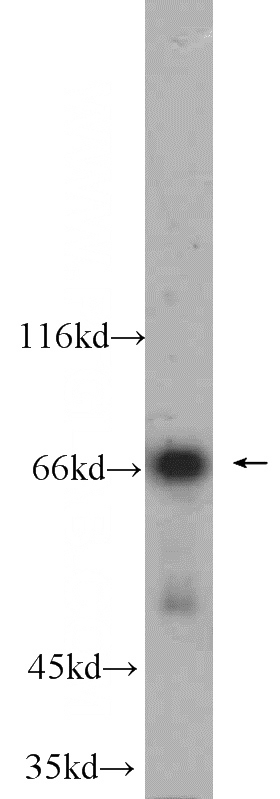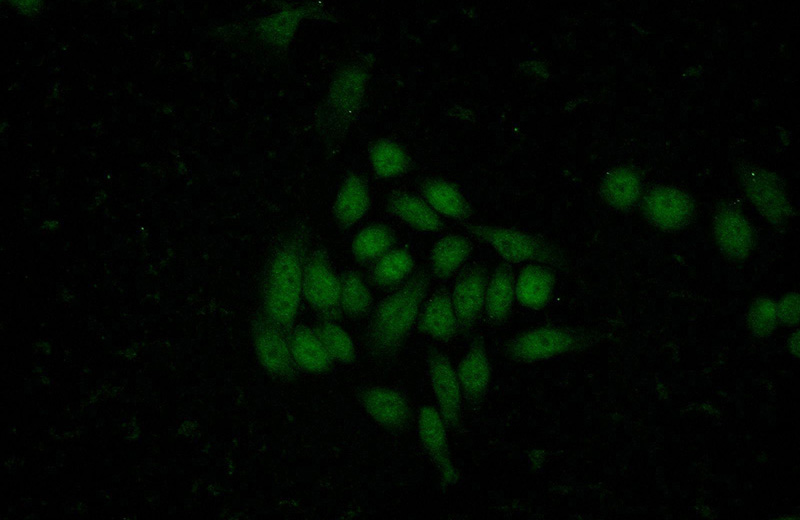-
Product Name
MNT antibody
- Documents
-
Description
MNT Rabbit Polyclonal antibody. Positive IF detected in HeLa cells. Positive WB detected in HeLa cells. Observed molecular weight by Western-blot: 70 kDa
-
Tested applications
ELISA, WB, IF
-
Species reactivity
Human; other species not tested.
-
Alternative names
bHLHd3 antibody; MAD6 antibody; MAX binding protein antibody; Max binding protein MNT antibody; MNT antibody; MXD6 antibody; Myc antagonist MNT antibody; Protein ROX antibody; ROX antibody
-
Isotype
Rabbit IgG
-
Preparation
This antibody was obtained by immunization of MNT recombinant protein (Accession Number: NM_020310). Purification method: Antigen Affinity purified.
-
Clonality
Polyclonal
-
Formulation
PBS with 0.02% sodium azide and 50% glycerol pH 7.3.
-
Storage instructions
Store at -20℃. DO NOT ALIQUOT
-
Applications
Recommended Dilution:
WB: 1:200-1:2000
IF: 1:20-1:200
-
Validations

HeLa cells were subjected to SDS PAGE followed by western blot with Catalog No:112718(MNT antibody) at dilution of 1:600

Immunofluorescent analysis of (-20oc Ethanol) fixed HeLa cells using Catalog No:112718(MNT Antibody) at dilution of 1:50 and Alexa Fluor 488-congugated AffiniPure Goat Anti-Rabbit IgG(H+L)
-
Background
Mnt (Max binding protein), also known as MAD6, ROX, bHLHd3 (class D basic helix-loop-helix protein 3) or MXD6, is a 582 amino acid nuclear protein that forms a complex with Max (Myc-associated factor X) to repress transcription. Mnt contains one basic helix-loop-helix (bHLH) domain and is encoded by a gene that maps to human chromosome 17p13.3. Chromosome 17 comprises over 2.5% of the human genome and encodes over 1,200 genes. Two key tumor suppressor genes are associated with chromosome 17, namely, p53 and BRCA1. Tumor suppressor p53 is necessary for maintenance of cellular genetic integrity by moderating cell fate through DNA repair versus cell death. Malfunction or loss of p53 expression is associated with malignant cell growth and Li-Fraumeni syndrome. Like p53, BRCA1 is directly involved in DNA repair, though specifically it is recognized as a genetic determinant of early onset breast cancer and predisposition to cancers of the ovary, colon, prostate gland and fallopian tubes.
Related Products / Services
Please note: All products are "FOR RESEARCH USE ONLY AND ARE NOT INTENDED FOR DIAGNOSTIC OR THERAPEUTIC USE"
